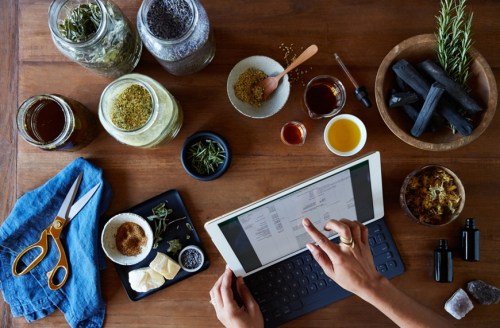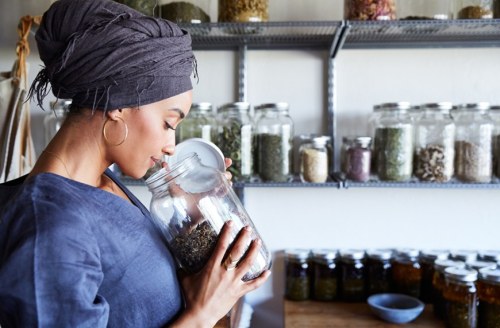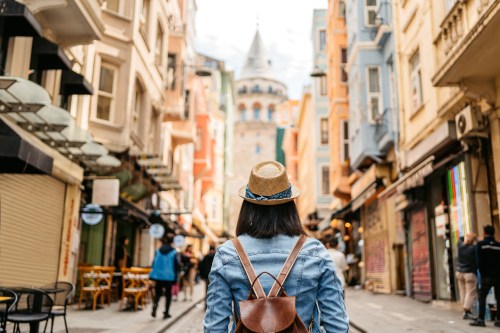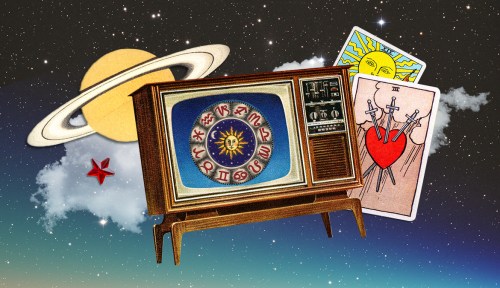Even though herbs have been used for mental and physical healing for centuries, it’s really only recently that they’ve started being recognized in mainstream Western culture. Now, more and more people are seeking them out to help with everything from depression, stress, and anxiety to bloating and PMS.
But as more people have become curious about herbalism, a whole slew of questions has emerged: What exactly is it? How can you find an herbalist that’s actually legit? When should you visit a licensed therapist or MD instead? To tackle this list of questions, I turned to Emily Berg, an herbalist at The Alchemist’s Kitchen, AKA the healthy hotspot in NYC to learn about incorporating plant-based wellness into your life.
Berg started her botanical education as an environmental studies major at Ithaca College, and then went on to be trained in herbal medicine at Heartstone School of Earth Essentials in Van Etten, New York. Now, she specializes in helping people use plants to reduce stress, anxiety, depression, and adrenal fatigue.
Before pursuing herbalism, Berg experienced her own battle with anxiety and depression. “I was working with psychiatrists and trying different pharmaceutical options. It wasn’t until I finally weaned back the pharmaceuticals—supplementing with herbs—that I really found a balance with my mental health,” she says. “It was something that worked for me and that made me feel empowered to want to learn more and share that healing experience.”
Here, she provides helpful tips on when and how to team up with an herbalist—whether it’s for mental, physical, or hormonal health. Keep reading for her tips.
This is everything you need to know about getting healthier with the help of an herbalist.

What herbalists do—and how to find a good one
Simply put, herbalists use plants for healing. Unlike medical professionals, they aren’t licensed, but there are schools and certification programs for training. “They are based on different traditions,” Berg explains, adding that not all herbalists practice the same way. “The one I studied with is based on the herbal tradition of using plants in the northeastern part of the United States for healing. But there is also southwestern herbalism, or ‘desert herbalism,’ which uses herbs native to more arid climates, and South American herbalism, which may host something like an ayahuasca ceremony.”
When an herbalist seeks out a certification, Berg says they can expect to get schooled in physiology, learning exactly how herbs affect different parts of the body. They are also taught common herb mixtures so they have an arsenal of go-to elixirs for when they start meeting with clients. Many programs also incorporate nature walks so aspiring herbalists can recognize the herbs they’re studying in their natural habitats.
When it comes to finding an herbalist you can trust—super important given the lack of licensing required—Berg has a few key tips. “Word of mouth is one great way. Another way is to research for a specific type of herbalist, since many of them specialize in something,” she says. There’s another, less obvious place Berg says you can research herbalists near you: Etsy! “A lot of herbalists sell their products through Etsy and you can find someone who lives in your hometown this way,” she says.
It’s also smart to look into your potential herbalist’s schooling—in general, weekend-long or otherwise short courses are a red flag—and to ask them how long they’ve been practicing on clients.

When to seek out an herbalist
Berg stresses that herbalists aren’t meant to replace doctors or mental health professionals—they all have different roles. Licensed medical professionals are still going to be your major point people for anything serious.
But she does say that one reason to consider working with an herbalist is if you’re looking for an alternative to a pharmaceutical or want to incorporate lifestyle practices like stress reduction into your healing. Since her specialty is anxiety and depression, she often works with people who want to transition off prescription meds. Definitely keep your doctor in the loop though—not all herbs and medications mix well together.
“Herbs, for the most part, are more gentle on the body than prescription medication and have fewer side effects,” Berg says, adding that it’s a great way for someone to feel empowered to take control of their own healing. “They are also less expensive.”
An herbalist can also provide intel on how you can incorporate herbs into your everyday life, whether it’s for digestion, sleep, relaxation, or even to use them to clean your house. “Using herbs regularly is a great way to connect to nature—especially if you live in an urban area,” she says. That, and some well-placed succulents.
Herbalists are the only wellness title popping up more and more—a growing number of young women are training to be shamans. This video shows what it’s like to get a healing from one of NYC’s best.
Sign Up for Our Daily Newsletter
Get all the latest in wellness, trends, food, fitness, beauty, and more delivered right to your inbox.
Got it, you've been added to our email list.











